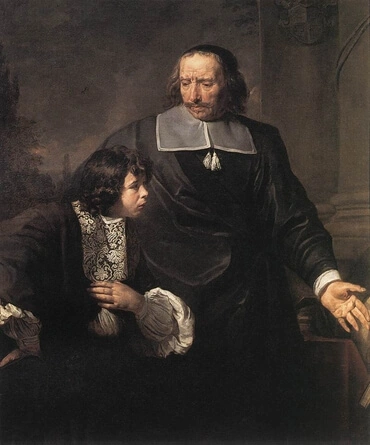1
ED Abrahamo se ne andò di là verso il paese del Mezzodì, e dimorò fra Cades e Sur; ed abitò come forestiere in Gherar.
2
Ed Abrahamo disse della sua moglie Sara: Ell’è mia sorella. Ed Abimelecco, re di Gherar, mandò a torla.
3
Ma Iddio venne ad Abimelecco in sogno di notte, e gli disse: Ecco, tu sei morto, per cagion della donna che tu hai tolta, essendo ella maritata ad un marito.
4
Or Abimelecco non se l’era accostato. Ed egli disse: Signore, uccideresti tu tutta una nazione, ed anche giusta?
5
Non mi ha egli detto: Ell’è mia sorella? ed essa ancora ha detto: Egli è mio fratello; io ho fatto questo con integrità del mio cuore, e con innocenza delle mie mani.
6
E Iddio gli disse in sogno: Anch’io so che tu hai fatto questo con integrità del tuo cuore; onde io ancora ti ho impedito di peccar contro a me; perciò non ti ho permesso di toccarla.
7
Ora dunque restituisci la moglie a quest’uomo; perciocchè egli è profeta; ed egli pregherà per te, e tu viverai; ma, se tu non la restituisci, sappi che per certo morrai, tu e tutti i tuoi.
8
Ed Abimelecco, levatosi la mattina, chiamò tutti i suoi servitori, e raccontò in lor presenza tutte queste cose; e quegli uomini temettero grandemente.
9
Ed Abimelecco chiamò Abrahamo, e gli disse: Che cosa ci hai tu fatto? e di che ti ho io offeso, che tu abbi fatto venir sopra me, e sopra il mio regno, un gran peccato? Tu hai fatto inverso me cose che non si convengono fare.
10
Abimelecco disse ancora ad Abrahamo: A che hai tu riguardato, facendo questo?
11
Ed Abrahamo disse: Io l’ho fatto, perciocchè io diceva: E’ non vi è pure alcun timor di Dio in questo luogo; e mi uccideranno per cagion della mia moglie.
12
E pure anche certo ella è mia sorella, figliuola di mio padre, ma non già figliuola di mia madre; ed è divenuta mia moglie.
13
Or facendomi Iddio andar qua e là, fuor della casa di mio padre, io le ho detto: Questo è il favor che tu mi farai: dovunque noi giungeremo, di’ di me: Egli è mio fratello.
14
Ed Abimelecco prese pecore, buoi, servi e serve, e le diede ad Abrahamo, e gli restituì Sara sua moglie.
15
Ed Abimelecco disse: Ecco, il mio paese è davanti a te, dimora dovunque ti piacerà.
16
Ed a Sara disse: Ecco, io ho donati mille sicli d’argento al tuo fratello; ecco, egli ti è coperta d’occhi appo tutti coloro che son teco. E con tutto ciò, ella fu ripresa.
17
Ed Abrahamo fece orazione a Dio; e Iddio guarì Abimelecco, e la sua moglie, e le sue serve; e poterono partorire.
18
Perciocchè il Signore avea del tutto serrata ogni matrice alla casa di Abimelecco, per cagion di Sara moglie di Abrahamo.







